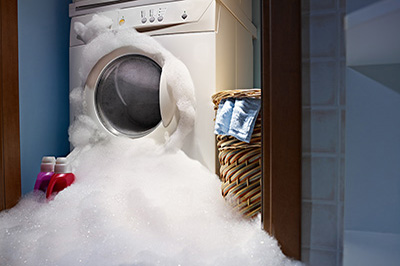Finding the Best Appliance Fixers
Last updated May 2023
 In the old days (well, the 1960s and 1970s), household appliances tended to last for decades. Hence, those trusty avocado green stoves and refrigerators kept on kicking well into the 2000s. But now, more complex features and less durable parts mean the machines we rely on tend to be a bit less reliable.
In the old days (well, the 1960s and 1970s), household appliances tended to last for decades. Hence, those trusty avocado green stoves and refrigerators kept on kicking well into the 2000s. But now, more complex features and less durable parts mean the machines we rely on tend to be a bit less reliable.
When your stuff breaks down, our unbiased ratings of local repair services for quality and price will help you find a fix. If you decide to buy a new appliance, our ratings of appliance stores will help you find reliable stores that charge low prices.
Ratings from Customers
Our Ratings Tables list the repair services that received 10 or more ratings in our surveys of area consumers. Our surveys on appliance repair ask customers to rate companies they used as “inferior,” “adequate,” or “superior” for “doing work properly,” “starting and completing work promptly,” “letting you know cost early,” and “overall quality.” We primarily surveyed Checkbook subscribers, but also invited other randomly selected consumers to provide ratings. Click here for further description of our customer survey and other research methods.
Our Ratings Tables report what percent of each company’s surveyed customers rated it “superior” (as opposed to “adequate” or “inferior”) on each survey question. They also report the percent of surveyed customers who rated each company “adequate” or “superior” (as opposed to “inferior”) for “overall quality.”
These ratings provide good reason to choose a service carefully. Several companies were rated “superior” overall by more than 90 percent of their surveyed customers, but some received “superior” ratings from fewer than half of their surveyed customers.
Complaint Histories
Our Ratings Tables also show counts of complaints we gathered from the Better Business Bureau (BBB) for a recent three-year period. Click here for more information on complaint counts.
“Factory Authorized” Shops Aren’t Necessarily Better
You might expect that a shop with a manufacturer’s authorization to perform—and be reimbursed for—warranty repairs would indicate it provides good service. But we found you can’t count on these partnerships to identify competent shops: Businesses that perform warranty repairs are much less likely to perform appliance repairs properly than shops that don’t.
Some manufacturers never check on the quality of their authorized shops; few conduct more than occasional cursory reviews. In addition, shops not authorized to perform warranty work for manufacturers generally don’t sell appliances, and since their livelihood depends on service rather than sales, they have a strong incentive to perform quality repairs.
There’s also a meaningful distinction between specialists and generalists. Repair services that specialize in just a few appliance brands can stock their trucks with a relatively large selection of parts, and their technicians are likely to possess extensive experience servicing specific machines. But, as with companies authorized to perform warranty repairs, the expected advantages of specialization aren’t reflected in our ratings.
How to Ace Your Appliance Repair Service Call
Once you find a good repair service, you’ll need to know how to deal with it. Here are some guidelines:
- When you call for an appointment, ask how the company calculates charges—especially what its minimum charge covers. Also find out the company’s policy on travel charges if the technician has to return to the shop for parts. Repair services usually don’t charge for travel time for the second visit, but make sure. If the company charges on a time-and-materials basis, ask how it calculates time charges.
- During this initial call, describe your appliance’s woes as accurately as possible: when the problem occurs, what it sounds like, how the appliance responds to different settings, etc. This will help the company send the right technician, put necessary parts on the truck, and schedule enough time for the job.
- Before the technician arrives, clear everything away from the appliance so that work can start at once.
- Describe the appliance’s problem to the technician just as you did over the phone. Avoid offering your own diagnosis or the pro may make the repair you request instead of fixing the machine.
- After the diagnosis is complete, request a final price to fix it. If the estimate seems too high, ask the technician how long the estimate is good for and whether coming back will incur an additional travel charge—many companies will give you a few days to think it over and not charge for more travel. Then call a few other repair services for price quotes.
- Ask about any warranties on parts and labor.
- Ask to see any replaced parts.
- Before paying, obtain an invoice that includes your name and address; the company’s name and address; a description of appliance repaired, including make and model; date of service; itemized charges; and any warranty on parts, labor, or both.
- If you can, pay by credit card. If there is a problem, you can dispute the transaction with your credit card issuer.


